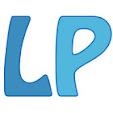Owning a Book No Longer Means Holding It
There was a time when the worth of a library could be measured by the weight of its shelves. Dust on the spine was proof of history and paper carried the weight of memory. Now the idea of ownership is shedding its skin. People still crave stories still reach for meaning but they no longer always want the weight that comes with it.
In this new chapter digital libraries are setting the pace. While Project Gutenberg and Anna’s Archive lean on archives, Z lib pushes browsing to the front giving access a new shape. No need to stack physical editions or worry about where to store the next one. With a swipe a scroll or a tap the world of literature feels lighter and more alive than ever.
Ownership Feels Different When the Shelf Is Invisible
Digital reading challenges the old rituals. No dog-eared pages no borrowed copies passed across tables. Instead ownership becomes an experience not a thing. A title lives in a cloud floats between devices waits patiently on an e-reader or hides behind a login. It is always there but never quite in hand.
That absence of material doesn’t mean a lack of connection. In fact the bond may be deeper. Readers often move faster through digital collections. They explore, they sample, they switch from history to mystery in a blink. The book becomes something fluid not a keepsake but a companion. The value lies in access not possession and for many that’s the whole point.
Convenience Is Changing the Way Stories Are Consumed
There’s a rhythm to digital reading that’s hard to ignore. It slips into life like background music. Stories unfold on a lunch break between meetings or in the back of a taxi. This kind of reading is immediate it’s responsive. The book waits not on a shelf but in a pocket ready when needed.
To understand how this shift reshapes ownership it helps to look at what people really want from their books:
Instant access to a wide selection
Gone are the days of browsing dusty bookshops hoping to stumble on the right title. Digital readers expect to tap and read without delay. The shelves stretch endlessly and they are always stocked. That freedom rewrites the rules of collecting. It is not about having it all it’s about having what matters in the moment.
Freedom from physical clutter
Minimalism is more than a buzzword. For many a clean space means a clear mind. Digital libraries support that with invisible collections that still feel full. Readers no longer need to choose between keeping a favourite and making room for new ones. They can keep it all without seeing a single spine.
A seamless blend of discovery and memory
Digital libraries often remember what a reader forgets. Bookmarks highlights notes stored across devices recreate a personalised experience. This continuity builds a relationship not just with one title but with an entire reading life. It’s like having a conversation that never really ends.
Ownership in this new form moves from the physical world into something that feels more like a habit. More like a thread that connects every page read with every moment lived.
Digital Books Are Shaping a New Kind of Reader
This shift doesn’t just affect shelves or storage. It changes people. Reading styles have morphed into something more fluid. Many now dip into different books at once follow tangents follow curiosity wherever it leads. The structure of reading has bent toward freedom.
What’s interesting is how this reshapes thinking. The permanence of physical books once invited deep focus long sessions hours lost in one story. Digital reading often invites a more dynamic kind of engagement. Some still sink deep others skim skip and jump. And both styles are valid.
This means the new reader is not always seeking to own in the traditional sense. They may not feel the same pull toward collecting or curating a personal library. Instead their collection exists as an ongoing conversation with stories rather than a possession of them.
The Meaning of Ownership Is Being Rewritten in Real Time
In a way this shift mirrors broader changes in how people engage with culture. Streaming did the same to music. Subscriptions changed how films are watched. Digital books are simply part of the same story.
The difference is that books have long carried a kind of sacred weight. Owning them was personal. It was status and memory and identity. Now ownership means something lighter and more flexible. It still has value but that value is less about pride and more about purpose.
Books are still books. But in the digital world they move differently. They travel faster. They land softer. And they stay with readers not on shelves but in moments.
Anda mungkin suka:Perbedaan Infinix Note 50 Pro vs Infinix Note 50 Ternyata Cuma di Bagian Ini...






Posting Komentar